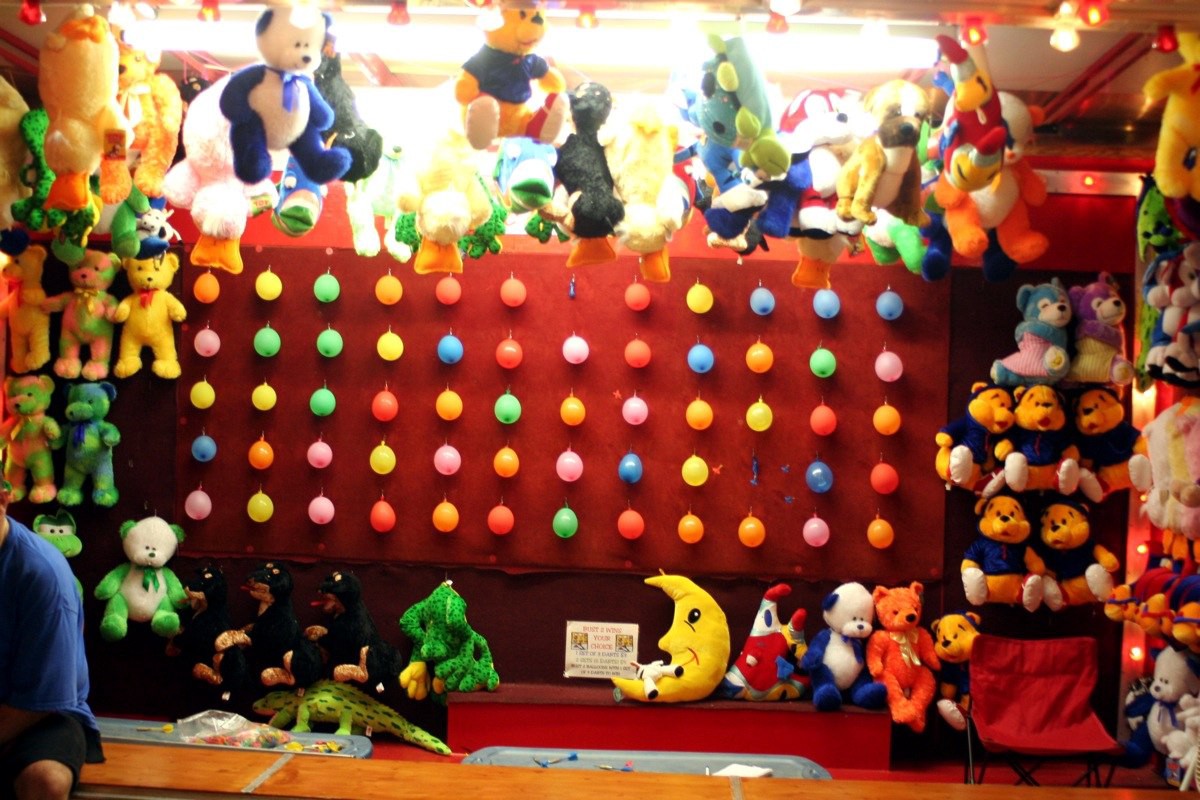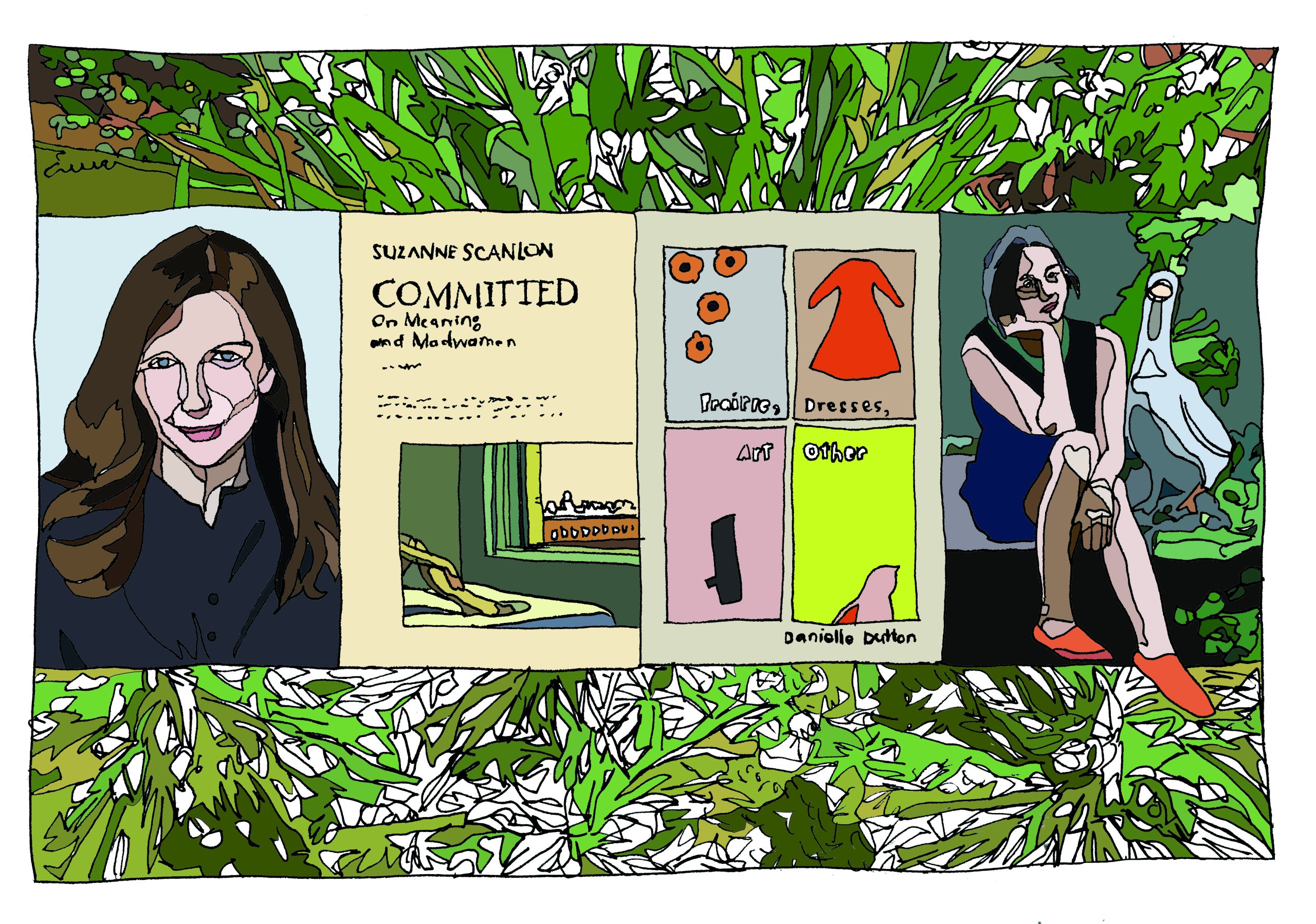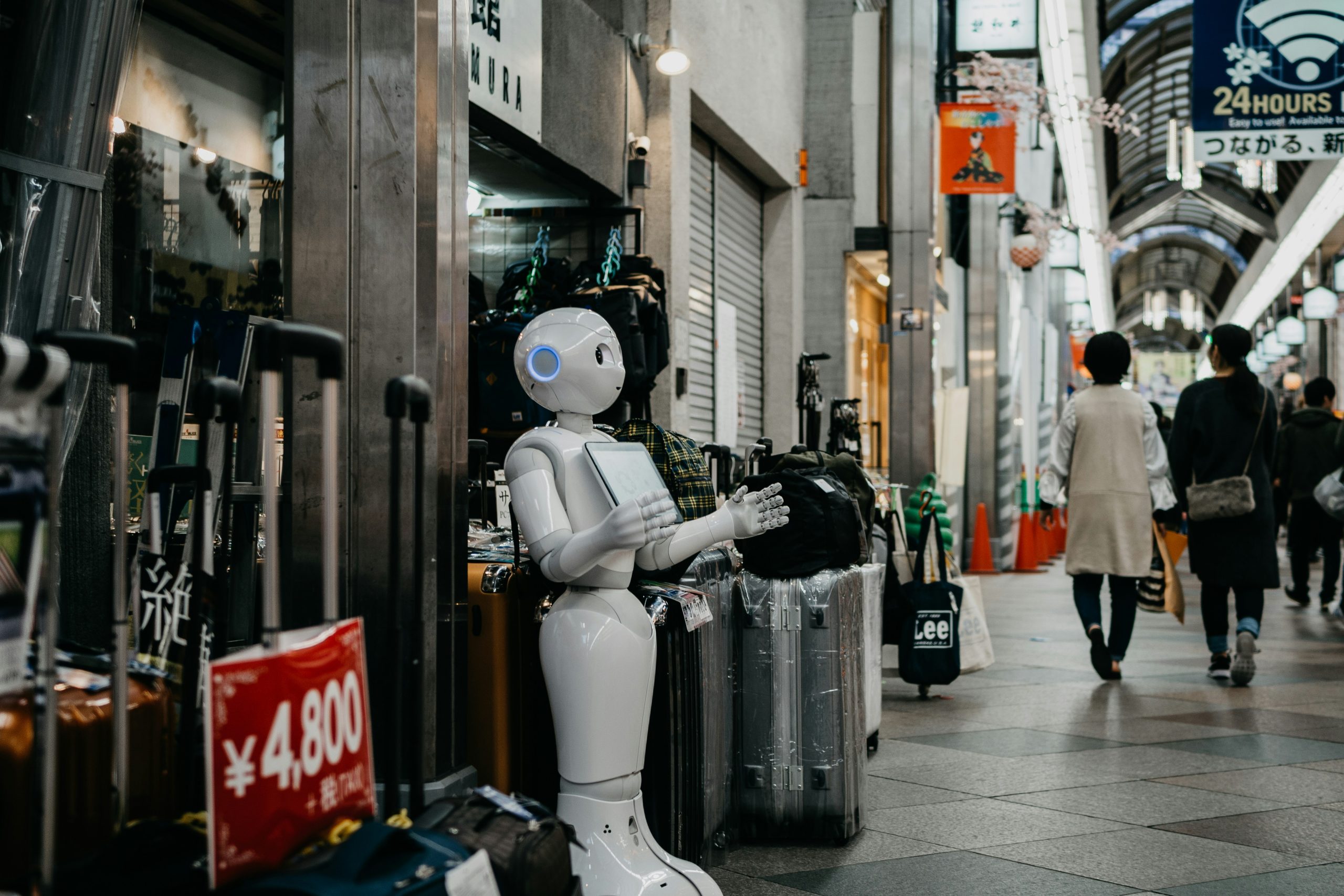Books & Culture
“The Junker”: Fear and Fathers at the Fairgrounds

by Adam Resnick

As a child, I feared my father more than any creature on earth or in my dreams. There was never physical violence, just a relentless vibe of something very heavy in the air. You could feel it from the backseat of the car, or in the leaden silence at the dinner table. That he would kill everything in sight to protect his family was never in doubt, yet decoding and verifying his love was a mystifying puzzle that at times seemed impossible to crack.
By modern standards, the summer carnival sponsored each year by the Harrisburg Lions Club might not seem like much, but back when I was a kid, in the 1960s, it felt as if benevolent aliens had annexed Susquehanna Township and erected a magnificent kingdom of rust and glitter in the dead field behind the outboard motor store. Too young to attend the event alone in those early years, I had the strange pleasure of being escorted by my father. He took me because this is what kids do and his kid was going to have a good time, goddamn it.
Typically, the other fathers at the fair seemed to enjoy themselves as much as their kids, chucking baseballs at steel milk bottles, eating sno-cones, or allowing some drunk to guess their weight. Merv didn’t engage in things like that. To him, this was weak, silly behavior. Any adult male trying to squirt water into the mouth of a plastic clown deserved no respect and would surely suffer the wrath of a vicious world that preyed on fools.
He stalked the grounds two steps behind me like the Secret Service, keeping a sharp eye out for any sort of trouble that might enter my space, be it human, mechanical or otherworldly. There was very little talk. When I wanted to play a game, he’d nod and pay the guy running the booth, shooting him “the look” that delivered a simple message: The kid wins. To be on the business end of Merv’s glare was to get an instant education in the art of compliance. Soon I’d be walking off with an enormous rash-inducing stuffed monkey that journeyed to Harrisburg all the way from the Martian shores from Hong Kong. Not bad for popping one out of six balloons.
The severe, solemn fun continued: select rides that Merv deemed would not shear my head off, and more games of chance where the concept of chance had been eliminated. I was riding the lone black horse on the carousel (a wish predictably granted after hushed words were exchanged between my dad and the attendant) when I heard the strange thumps. They seemed to come from another part of the world and threw off the rhythm of the calliope. Even old Blackie looked spooked. My father’s face whirled past me at erratic intervals as the last blur of sunlight vanished somewhere beyond Sixth Street.
By the time I exited the ride the thumping had ceased and Merv told me it was getting late. For a split second, a request for “ten more minutes” crossed my mind, but I knew not to negotiate with him. Maybe he noticed a fleeting twitch in my eyebrows.
“Okay, what else?” he exhaled with a gust of cigarette smoke.
I led him toward a glowing rocket I saw in the distance as the mysterious noise returned. It was louder now; slow, deliberate, full of intent — more of a pound than a thud. I tried to follow it, grabbing my father’s hand, but it died off abruptly. We neared the rocket — which was just a tall, rocket-shaped hut that housed a small balding lady selling vaguely rocket-shaped Fudgsicles and other snacks unrelated to outer space. Soon she was offering me options for my sundae. Peanuts? Chocolate syrup? Marshmallow? Did we want one spoon or two? Merv had little patience for this sort of thing.
“Have you ever heard of the atomic bomb?” he inquired of the confused woman. “Well, the people who made it didn’t ask as many questions as you do.” The transaction was completed in silence.
I had almost finished my ice cream when it exploded again, so sharp and brazen I could feel it through my sneakers. I saw my father’s shoulders jump — he hated being surprised by loud noises. That’s when I knew it was real.
We both turned at the same time. Beyond the edge of the fair, in an empty corner of the field, sat a green pickup truck; motor running, high beams fixed, illuminating another car. Wordlessly, we stepped into the darkness as the dead straw beneath our feet crackled, making our way toward the headlights as they sliced through a drifting cloud of exhaust.
Pound!
3 HITS 25 CENTS the sign next to the old junker said. The car was a charred humpback relic from some past world I was glad not to have known. It looked like a collapsed elephant, graciously awaiting a paradise that would never come. A skinny frustrated teenager took his final swing, shook his head, and jumped off the roof. He returned the sledgehammer to a man wearing a cowboy hat and cautiously glanced at his buddies who laughed and hopped and held their bellies. The cowboy, making no attempt at humor, suggested he take up sewing. Another teen boy, shirtless despite the cool evening, slapped some coins into the cowboy’s hand as if they were old friends and bounded onto the hood. He did a little dance for his pals and then went to work on the dashboard through the gaping hole where a windshield had once protected the car’s occupants from weather and blood-feasting insects. Although energetic, the kid was dumb, and unable to cause any significant damage. The dashboard, having been the target of countless ambushes in the past, was free of instruments or anything remotely breakable. He did manage to expose a cottony looking substance that protruded through a tight seam in the metal, but his friends were unimpressed and responded accordingly. In defiance, he let loose with a spastic barrage on the car, which only caused the cowboy to whip off his hat and swat him on the ass. “Damn you, boy — can’t you count?” he hollered. That one played big with the crowd.
Those obnoxious aggressive teenagers, with their brash laughing voices — they reminded me of my older brothers. Boy, would I love to shut them up and bring a little peace to the planet, I thought. But I was a punk; barely six. I looked up at my father, the man who had refused me nothing since we arrived at the fair. But he shook his head “no.” Bashing a car with a sledgehammer was beneath his magnificent powers; an empty expression of rage without purpose. Kid stuff. “It’s getting late,” he reminded me.
We’d only made it a few steps before the thud. It was deep and booming. Behind us, a thick-waisted, bull-like man had taken a swing at the car to the delight of his crummy-looking children. My dad squinted, merely observing, as the man took a moment to remove his suit jacket. His tie was undone and sweat was already soaking through his shirt. He wiped his hands on his pants and picked up the sledgehammer again. Another commanding strike left a respectable crease in the driver’s door. Four more followed and the door was now cratered in the middle. His kids jumped up and down, embracing one another in a clump of buckteeth and lopsided Mohawks. Even the teenagers applauded. With a heaving chest and lungs sucking truck exhaust, the man passed the sledgehammer back to the cowboy. He’d gotten his fifty cents worth and was smart enough to know that the next swing might have embarrassed him. In his mind, he was stepping away in victory and even managed a trembling smirk as his diaphragm struggled to bring order to his thoracic cavity. Underneath the bull was just a fat guy with no moxie and no heart.
I was scrutinizing the little celebration going on in front of me when I felt a nudge. As always, Merv had been watching me. A rare half-smile came to his face and he winked.
The bull was sucking down a bottle of grape soda like it was medicine when my dad handed the cowboy a few bills. He grabbed the sledgehammer before it was even offered to him. Then he slowly walked around the car, gazing into its past. The sledgehammer was disrespectfully tucked under his arm like a cardboard mailing tube.
Satisfied with his inspection, he now gripped the sledgehammer. I recall hearing a whoosh, seeing a blur of movement, and the sound of a meteor hitting the earth. Merv had launched an attack on the driver’s side doorpost — the bar of steel that joins up with the windshield frame. The noise he created was unlike the other bangs and wallops in the field that night. This sounded like the end of the world. Like continents splitting apart. A chunk of chrome that survived countless fairs before this took flight and landed in the vicinity of the Fudgesicle rocket. Somewhere a teenage voice called out, “Damn!” Merv continued to pummel the doorpost until it V’d inward and caused the corner of the roof to list. Now he walked around to the opposite doorpost and beat it so mercilessly that the front grill and headlight sockets appeared to form a face that grimaced in agony. The teenagers, the bull, and the cowboy gazed on in silence. To cheer or even make a comment would be like whistling in church.
You could see the ridged outline of every muscle through his t-shirt. A history nobody wanted to learn was written in his eyes. The cowboy made no attempt to tally the hits as the assault went on — urgent, relentless, personal. (The whole time with a lit cigarette in his mouth!) He continued until the entire front section of the roof sagged. The doorposts, loyal supporters of the car’s structural integrity since it rolled off the assembly line, had finally clocked out. Then, in a very somber, almost reverent manner, Merv stepped onto the hood to finish what he started. He raised the sledgehammer, and began tapping out the dots and dashes.
POUND.
I love you.
POUND.
Do you read me?
POUND.
I love you.
When he was through, the roof sloped almost completely down to the dashboard. The open space that once held a windshield no longer existed. The junker was now a wreck, and its value as something to be beaten drifted off with the people exiting the fair. The cowboy slumped against the pickup truck and crooked his hat in a way that made his eyes disappear.
My father was barely winded as we walked out of the field. He rested his forearm on my shoulder and said, “Time to go home.”
***
Adam Resnick’s essay collection Will Not Attend will be available in paperback this July









